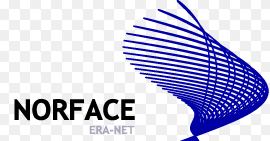 Pre-call announcement
Pre-call announcement
The ESRC will shortly be launching a call under the UK in a Changing Europe initiative for Brexit Priority Grants. These are to support additional activity (including research synthesis and potential new short-term research activity) related to the process of the UK leaving the European Union.
The grants will be between £100,000 and £300,000 (100 per cent fEC, with the ESRC contributing 80 per cent fEC) and for a duration of up to 18 months. The ESRC expects grants to commence on 1 April 2017.
Whilst grants under the call will be able to support new research, grant holders will be expected to undertake stakeholder and public engagement activity throughout the grant’s duration. Grant holders will also be expected to work closely with the initiative, led by Director Professor Anand Menon in communicating the research.
The ESRC intends to launch the call at the beginning of December 2016, and it is expected to close at 16.00 on 25 January 2017.
The following initial themes have been identified as potential priorities:
- Key policy areas and their impact on the UK: the single market and its implications for trade, labour market dynamics, and internal migration (within Europe); financial services regulation, monetary policy, and the future of the eurozone; the EU’s external relations; policies relating to internal security and justice; energy and environmental policy.
- The UK and the workings of European institutions: European institutions, democracy, governance, regulation; the influence of member states and sub-national regions on EU decision making; the implications of multi speed integration, including of further eurozone integration on non euro members; legal aspects of membership and non-membership.
- Attitudes towards the EU: Social and political attitudes; the nature of euroscepticism; the role of the media in shaping public and political attitudes.
- A Changing UK: The impact of legal, constitutional, policy and political change in the UK on the relationship.
If you are interested in applying then please contact your RKEO Funding Development Officer in the first instance.
 he following is a snap-shot of funding opportunities that have been announced. Please follow the links for more information:
he following is a snap-shot of funding opportunities that have been announced. Please follow the links for more information: PSRC is
PSRC is  In partnership with the
In partnership with the 


 Friday saw the launch of the
Friday saw the launch of the 
 BU’s Dr Sam Goodman is one of AHRC’s New Generation Thinkers, having won the award last year. He features in
BU’s Dr Sam Goodman is one of AHRC’s New Generation Thinkers, having won the award last year. He features in  BBC Radio 3 and its programmes
BBC Radio 3 and its programmes  As part of the
As part of the  Are you an Early Career Researcher? Would you like the opportunity to develop the skills to tell the story of your research to new audiences?
Are you an Early Career Researcher? Would you like the opportunity to develop the skills to tell the story of your research to new audiences?













 REF Code of Practice consultation is open!
REF Code of Practice consultation is open! BU Leads AI-Driven Work Package in EU Horizon SUSHEAS Project
BU Leads AI-Driven Work Package in EU Horizon SUSHEAS Project Evidence Synthesis Centre open at Kathmandu University
Evidence Synthesis Centre open at Kathmandu University Expand Your Impact: Collaboration and Networking Workshops for Researchers
Expand Your Impact: Collaboration and Networking Workshops for Researchers ECR Funding Open Call: Research Culture & Community Grant – Apply now
ECR Funding Open Call: Research Culture & Community Grant – Apply now ECR Funding Open Call: Research Culture & Community Grant – Application Deadline Friday 12 December
ECR Funding Open Call: Research Culture & Community Grant – Application Deadline Friday 12 December MSCA Postdoctoral Fellowships 2025 Call
MSCA Postdoctoral Fellowships 2025 Call ERC Advanced Grant 2025 Webinar
ERC Advanced Grant 2025 Webinar Update on UKRO services
Update on UKRO services European research project exploring use of ‘virtual twins’ to better manage metabolic associated fatty liver disease
European research project exploring use of ‘virtual twins’ to better manage metabolic associated fatty liver disease